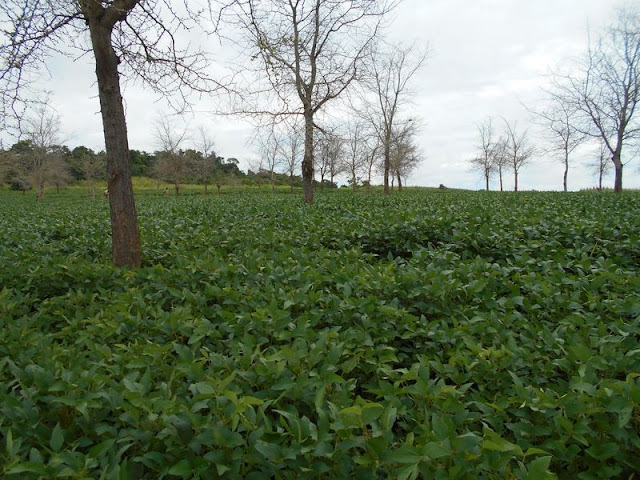Scribes urged to communicate agricultural information effectively
 |
| Participants discuss the importance of effective communication - Picture By Bright Sakala |
By Gloria Siwisha, Notulu
Tembo and Mary Mweemba
Lusaka, 10 July, 2020………DESPITE the huge potential that Zambia’s agricultural sector has in food production, it continues to face
challenges of low productivity per unit area especially among smallholder
farmers.
According to a 2019 Food
and Agriculture Organisation (FAO) baseline survey report, yields for maize were currently around
1 to 1.5 tons per hectare against the potential of 5 to 8 tons per hectare.
Low crop yield trends
also hold for grain legumes whose yields are said to be stagnantly at 0.7 tons
per hectare against a potential of 2.3 tons per hectare.
Experts say that one of
the reasons for the status quo is that specific information needed by
smallholder farmers to increase yields is not packaged nor disseminated
effectively.
In view of this, the
Sustainable Intensification of Smallholder Farming Systems (SIFAZ) project in
Zambia convened a three day media training at the Zambia Institute of Mass
Communication (ZAMCOM) aimed at building the capacities of the National
Agricultural Information Services (NAIS) staff in effective agricultural
communication.
SIFAZ project Chief
Technical Advisor Mtendere Mphatso said during the opening of the event that
the motivation for holding the training followed the realization of the important
role that effective communication plays in societal transformation.
“You who report or document things; can shape
the narration; you can shape the story…you can increase people’s hopes and understanding;
you can also destroy and damage how people look at various issues… The key
issue that we are trying to do here is recognizing the critical role that
information officers play and how critical it is not only to the SIFAZ project
but the Ministry of Agriculture in general,” he said.
He urged participants to
begin to disseminate agricultural information effectively as it is critical in
changing the perceptions of smallholder farmers towards sustainable
agricultural practices.
“Those of us who work on
the technical side of issues expect information to go out there to farmers; to
the general public not only about the project but about what sustainable
intensification practices entail ….We are interested in making sure that the
information is not only in a radio programme but how systematic we can be to change
people’s perceptions, provide knowledge, and change people’s attitudes towards
sustainable intensification practices being promoted,” he said.
The Deputy Director of
the National Agricultural Information Services Mutukelwa Mukelabai, urged participants
to put into practice what they learned from the training.
“If you are trained
today and you do not put it into practice, the farmer is not going to benefit.
We have heard stories and complaints that the research stations have come up
with various technologies and that some of the them are gathering dust on the
shelves because they are not reaching the farmers,” he said, “So, when we
communicate to the farmers, we should be able to reach them with the relevant
technological information for them to improve their productivity.”
Participants talked to, commended
SIFAZ Project for organizing the training saying it would help them tell
agricultural stories which impact society.
“From this training I
have learned that one of the reasons journalists are not communicating
agricultural information effectively is because we are not investing in
research nor reading widely on science and technology. As a result, we may not fully understand the
subject so that we are able to put together a good story that would motivate
farmers to adopt best methods of farming to improve their yields,” said Chunda
Botha, the Lunte District Agricultural Information Officer.
He pledged that his
contribution to agricultural information dissemination from Lunte district
would now be more effective than before.
The training was attended
by Agricultural Information Officers from NAIS Headquarters and 27 SIFAZ project
implementing districts.
SIFAZ, a 12 million
euros worth project, is funded by the European Union and being implemented by
FAO in partnership with the Ministry of Agriculture and the International Maize
and Wheat Improvement Centre (CIMMYT).
It runs from 2019 to
2024.
The project whose goal
is to improve sustainable and climate smart crop production and management
practices with a gender sensitive approach, is targeting to benefit 16,000
smallholder farmers, 8,800 who should be men and 7,200 women.
SIFAZ
project is promoting technologies with respect to prevailing climatic
conditions in agro ecological regions IIa, IIb and III.
The
expected outcomes of the SIFAZ project are that ‘sustainable intensification
practices are co-developed with farmers and made available for scaling up; that
farmers are trained, mentored and capacitated to use SIPS, and that they are
better able to manage farmer enterprises and engage value chain actors.
The
project also hopes to bring about the establishment of an enabling
institutional and policy environment for scaling and adoption of SIPS by
smallholder farmers.
With this training, it
is hoped that communication personnel will effectively disseminate agricultural
information to meet the needs of smallholder farmers and positively influence
their behaviors towards sustainable intensification practices.



Comments
Post a Comment